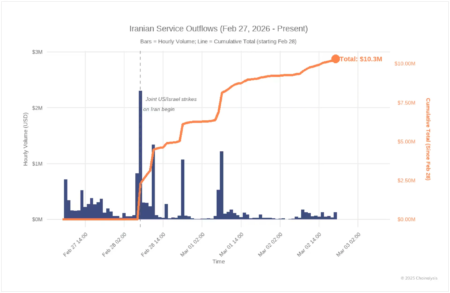Sui-Based Tokens Experience Significant Plunge Due to Cetus Protocol Exploit
On Thursday morning, several tokens based on the Sui blockchain saw dramatic declines in value on decentralized exchanges following a reported exploit of the Cetus Protocol. Recognized for its leading decentralized exchange (DEX) services and liquidity infrastructure built on Sui, Cetus appears to be grappling with a significant liquidity crisis. The sudden downturn has resulted in tokens such as LOFI and HIPPO plummeting by over 50% within just an hour. Some tokens reportedly experienced a staggering drop of more than 90%. While centralized exchanges have largely maintained stable prices for Sui-based tokens, the ongoing liquidity drain is beginning to exert a downward pressure on the broader market, as highlighted by data from CoinGecko.
Impact on CETUS Token and Market Stability
The CETUS token specifically has reported a significant drop of approximately 50% on decentralized exchanges and around 30% across other platforms in just one hour. As the situation unfolds, the Sui community is closely monitoring the implications of this liquidity crisis on market stability. While trading value remains relatively intact on centralized exchanges, the overall sentiment in the market is tense, given the history of exploits resulting in drastic losses for investors.
Incident Confirmation by Cetus
In response to the crisis, the Cetus Protocol team issued a statement on social media platform X, confirming the detection of an incident within their protocol. They reported that their smart contracts had been paused as a precautionary measure and assuaged the community by stating, "The team is investigating the incident at the moment. A further investigation statement will be made soon. We are grateful for your patience." This proactive approach aims to reassure users amid rising uncertainties surrounding the protocol.
Analysis of the Financial Losses
Analysts at Lookonchain estimate that over $260 million has been drained from the Cetus protocol, with attackers converting stolen funds into USDC before bridging them to Ethereum and swapping for ETH. Reports from blockchain security firm PeckShield echo these findings, revealing that over $200 million has been lost, with the same $60 million figure for bridged USDC verified. These staggering figures illustrate the scale of the exploit and underline the vulnerabilities present in the blockchain infrastructure.
Community Speculation: Hack or Oracle Bug?
Debate continues within the Sui community regarding the nature of the exploit. Some believe that Cetus was not directly hacked, attributing the financial drain to an oracle bug. Conversely, others argue that an oracle exploit more accurately describes the incident due to the significant funds being drained and moved out in the form of USDC. This divergence in perspectives emphasizes the need for improved transparency and communication from protocols dealing with security issues.
Conclusion and Future Considerations
As the Cetus Protocol team conducts a thorough investigation of the incident, the crypto community remains alert to the potential implications for decentralized finance (DeFi) projects on the Sui blockchain. The fallout from this exploit serves as a stark reminder of the importance of robust security measures in protecting investors’ assets. Moving forward, improved auditing and verification protocols may be necessary to mitigate risks and enhance stability within the rapidly evolving landscape of DeFi and blockchain technology.
















